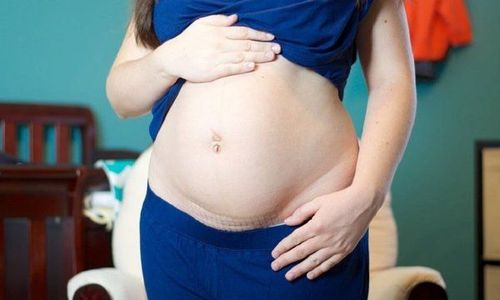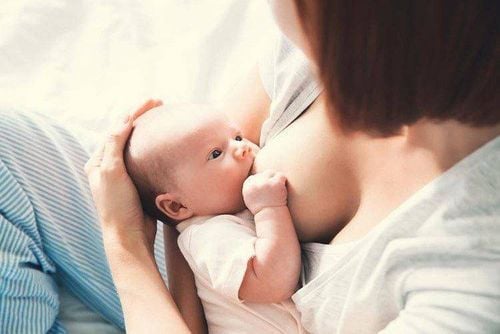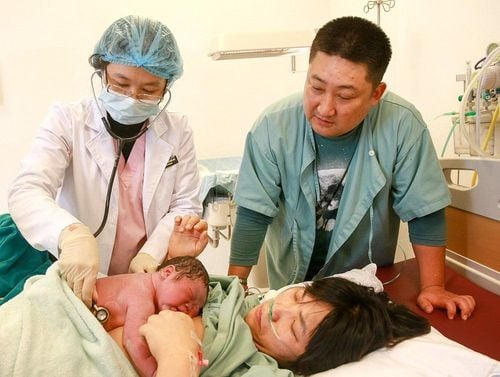This is an automatically translated article.
Nutritional care for women after giving birth is very important in providing energy for the mother's body to recover, have the strength to take care of the baby and provide the necessary nutrients for the baby through breast milk.
1. Why is it important to pay attention to nutrition care for mothers after giving birth?
Exclusive breastfeeding for the first 6 months is extremely important for the development of the baby. According to the World Health Organization, infants should be breastfed as early as 1 hour after birth and exclusively breastfed for the first 6 months, then given complementary foods from the age of 6 months, combined with breastfeeding. breast milk until the baby is 24 months old.
In the postpartum period - breastfeeding, the mother's nutrition has a great influence on the baby's health. Specifically, good nutrition helps mothers have enough milk to feed their babies. Therefore, postpartum mothers need to have a reasonable diet, combined with exercise, scientific rest and psychological comfort. In particular, many studies have confirmed that the mother's nutrition has a certain influence on the amount of milk and the micronutrient composition in breast milk. Specifically, if the mother's diet is deficient in vitamins, especially vitamins A, D and B1, the breast milk will also lack these vitamins. In addition, in the first 6 months of life, the amount of antibodies of the baby is provided directly through breast milk. Therefore, ensuring that the mother provides enough energy and necessary nutrients for the mother will help prevent the best disease for the baby. Children who are exclusively breastfed in the first 6 months will develop comprehensively intellectually and physically, have good resistance, are less susceptible to infections, and grow up less susceptible to chronic non-communicable diseases. .
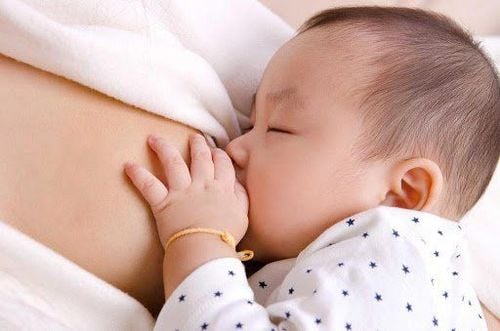
2. Postpartum nutritional needs of nursing mothers
The need for energy and nutrients of a nursing mother is quite high, even higher than during pregnancy because the mother loses a lot of energy and nutrients through blood loss during labor, produce colostrum and breast milk immediately after birth.
2.1 Energy needs The energy needs of a nursing mother will be about 500 kcal/day higher than that of a non-pregnant woman. In addition, a mother's energy requirements during lactation are dependent on her physical activity status and weight gain during pregnancy. Specifically:
Women before and during pregnancy with good nutrition, gain 10-12kg: Need to ensure energy needs to reach 2,260 kcal/day for light workers, 2,550 kcal/day for people average labor; Women before and during pregnancy with poor nutrition, gaining less than 10kg: Need to diversify foods and eat more to ensure energy needs when breastfeeding.
Trắc nghiệm: Những điều cần biết về kiêng cữ sau sinh
Sau sinh, cơ thể sản phụ sẽ có rất nhiều sự thay đổi, việc thực hiện tốt các kiêng cữ sau sinh và bổ sung đầy đủ các chất dinh dưỡng cho cơ thể sẽ giúp ích rất nhiều trong quá trình hồi phục sức khỏe. Bài trắc nghiệm dưới đây sẽ giúp mọi người có cái nhìn tổng quan về kiêng cữ sau sinh và thực hiện sao cho phù hợp nhất.The following content is prepared under supervision of Thạc sĩ, Bác sĩ y khoa, Tạ Quốc Bản , Sản phụ khoa , Khoa Sản phụ khoa - Bệnh viện Đa khoa Quốc tế Vinmec Phú Quốc
2.2 Need for nutrients Protein: In the first 6 months after giving birth, the total amount of protein needed by lactating women is 79g/day. In the next 6 months, the total amount of protein needed is 73g/day. In terms of proportion, the amount of animal protein should account for more than 30% of the total protein consumed. Postpartum mothers should choose foods with high protein content such as fish, meat, eggs, milk, beans,...; Fat: The amount of fat needed for nursing mothers should account for 20-30% of dietary energy. Fats such as EPD, DHA, n3, n6, ... are abundant in fish oil, some fatty fish, some vegetable oils, ... are recommended to be used because they are very important for the health and well-being of the body. develop baby's brain and eyesight; Vitamins and minerals: Adequate supplementation is required for nursing mothers. Accordingly, postpartum mothers should eat more than 400g of fruits and vegetables per day and eat enough fiber to avoid constipation; Water: To produce enough milk for the baby's needs, nursing mothers should drink about 2-2.5 liters of water/day.
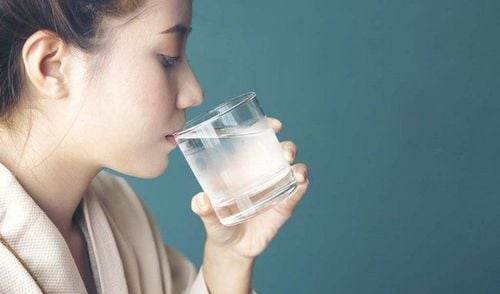
3. Guidelines for reasonable postpartum nutrition care
2.1 Increase the number of meals a day The energy and nutrient needs of women after childbirth and breastfeeding increase, so the whole day's diet should be divided into many meals: 3 - 6 meals/day to provide enough nutrients.
3.2 Diversity of food groups A nursing mother's meal should have a variety of foods with all four groups of nutrients: carbohydrates, proteins, fats, vitamins and minerals. A balanced diet, combining many different healthy foods including:
Starch: Rice, noodles, pho, bread, potatoes,...; Dairy products: Fresh milk, yogurt, cheese,...; Fats: Fish oils, cold sea fish, nuts; Protein: Meat, fish, eggs, milk, beans, sesame, cereals,...; Vitamins and minerals: Found in vegetables and fruits; Water: It is recommended to drink 12-15 cups of water per day. Every day, nursing mothers need food including: 450 - 500g of cereals, 50 - 100g of beans and bean products, 80 - 100g of fish and meat, 40 - 50g of eggs, 300 - 400g of vegetables, 100 - 200g fruit, 20g fat.
3.3 Foods to eat Salmon: Rich in nutrients for new mothers. Salmon is high in DHA, which improves the mother's mood and is important for the development of the baby's nervous system. As recommended, every week postpartum women should eat about 336g salmon;
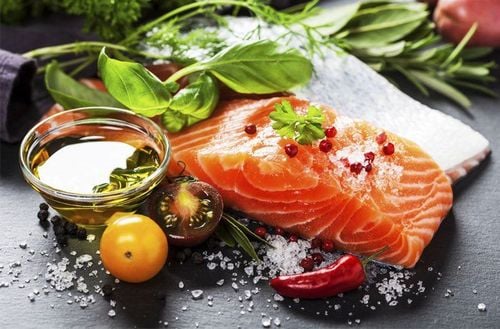
Low-fat dairy products: Yogurt, fresh milk, cheese provide a large amount of vitamin D to help strengthen the bones of mother and baby. In addition, milk is rich in protein, B vitamins and calcium. Every day, the mother should drink about 700ml of milk; Beef: Rich in iron, protein and vitamin B12, providing enough energy for the mother. Breastfeeding women should eat lean beef to limit fat intake; Vegetables: Green vegetables such as spinach, broccoli are rich in vitamin A, good for the health of mother and baby. In addition, vegetables, especially beans are also a rich source of vitamin C, iron and calcium, good for health; Fruit: Postpartum and breastfeeding women should eat at least 150g of fruit per day. The citrus fruits rich in vitamin C are very good for the postpartum mother; Whole grains, brown rice: Provides enough energy for the mother and produces quality milk for the baby.
3.4 Foods to avoid When breastfeeding, the foods a mother eats can pass into her milk supply. Therefore, breastfeeding women need to be careful with the following foods:
Alcohol: The nervous system and digestive system of children are very immature, so they need to be protected by alcohol even if it is very small. Moreover, alcohol can also affect the mother's ability to produce milk; Tea, coffee: Breastfeeding mothers should not drink too much of these stimulants because they will make the baby restless, uncomfortable, difficult to sleep,...;

3.5 Some important notes when caring Postpartum nutrition Do not be excessively abstinent, but need to eat a full and varied diet to have enough energy to take care of the baby; Choose fresh food, ensure hygiene; Have a reasonable rest regime, avoid worry, sadness, insomnia, keep an optimistic and comfortable spirit; Use caution when using drugs during lactation, especially antibiotics, hormonal drugs or drugs that affect the nervous system Establishing a scientific postpartum nutrition regimen will help the mother have a full enough milk to feed the baby, help the mother have enough energy to take care of the baby and help the baby have a comprehensive development both physically and mentally.
If you have any questions regarding postpartum nutrition for pregnant women, you can leave a question in the "ASK DOCTOR VINMEC" section right on the page.
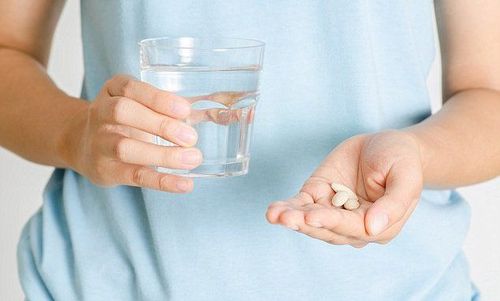
Please dial HOTLINE for more information or register for an appointment HERE. Download MyVinmec app to make appointments faster and to manage your bookings easily.






